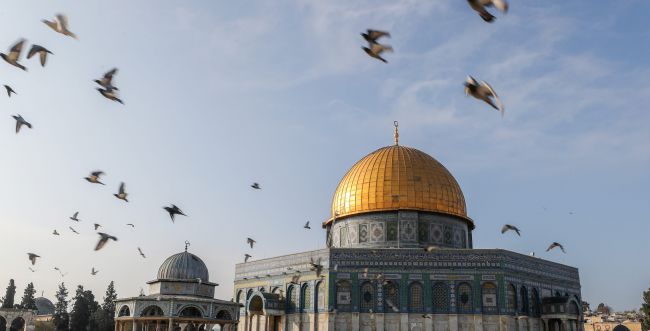Jewish Pilgrimage to Temple Mount surges during Passover, sparking renewed debate
Jewish visitation to Jerusalem’s Temple Mount saw a significant rise during this year’s Passover, reflecting shifting attitudes and intensifying religious and political tensions. The increased footfall has reignited longstanding debates over prayer rights, sacred tradition, and sovereignty at one of the world's most contested holy sites.

This year’s Passover holiday witnessed a dramatic increase in the number of Jewish visitors to Jerusalem’s Temple Mount, reigniting long-standing tensions over access and religious practices at one of the world’s most contested holy sites. According to statistics released by Beyadenu, an organization that promotes Jewish access to the Temple Mount, a record 6,788 Jewish visitors ascended the site during the holiday week. On the first day of Passover alone, 494 Jewish worshippers visited, marking a 43% rise from the 345 who did so during the same period last year.
The Temple Mount, considered Judaism’s holiest site and Islam’s third-holiest, has historically been governed by a fragile status quo arrangement: Jews and other non-Muslims may visit during designated hours, but are prohibited from praying at the site. Despite this, recent years have seen a growing number of Jewish visitors who quietly recite prayers or engage in other religious practices during their visits, often under the watchful eye of security forces.
While Prime Minister Benjamin Netanyahu has repeatedly stated that there has been no official change to the status quo, National Security Minister Itamar Ben Gvir has publicly claimed credit for what he describes as reforms that allow Jewish prayer on the mount. “The rights of Jews on the Temple Mount are advancing too slowly in relation to the progress among the Israeli public,” said Beyadenu CEO Tom Nisani, who credits the increased visits to growing public support for Jewish presence at the site.
The surge in visits has stirred controversy, especially within Orthodox Jewish circles. Traditional rabbinic authorities have long prohibited Jews from entering the Temple Mount due to issues of ritual impurity and the site's sanctity. Prominent religious leaders continue to oppose the growing movement of Jews seeking to re-establish a religious foothold there, viewing such efforts as both halachically problematic and politically inflammatory.
Tensions also flared as authorities detained several Jewish activists who attempted to bring animals to the Temple Mount in order to perform the ancient Passover sacrifice, an act prohibited under Israeli law due to security concerns and the volatile nature of the site. Critics argue that such actions are provocative and risk further igniting religious conflict, particularly with the Muslim world, for whom the site, known as Haram al-Sharif, is of profound spiritual significance.
Nevertheless, a growing segment of religious Zionists and Orthodox Jews argue that Jewish presence on the Temple Mount represents not only a religious obligation but a declaration of sovereignty and connection to Jewish heritage. As the debate intensifies, the Temple Mount continues to be a flashpoint, balancing the weight of ancient traditions with modern-day political and religious tensions.